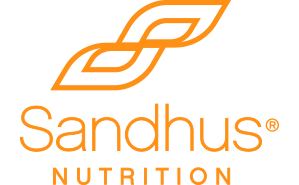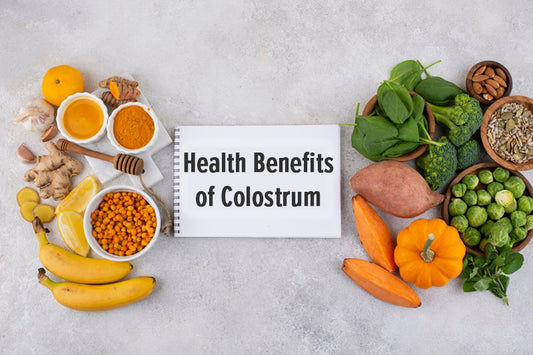Estrogen is a hormone that is important for both males and females and has many benefits for the body. Females make estrogen in their ovaries for the menstrual cycle, while males also produce small amounts in the testes. This hormone is not merely a player in reproductive health—it influences bone density, cardiovascular well-being, and libido. In this comprehensive guide, we'll explore the nuances of estrogen in males and delve into natural strategies to boost its levels.
Understanding Estrogen in Males:
It's crucial to clear up the idea that estrogen is only for females. Estrogen is a hormone that matters for both men and women, and it plays a significant role in keeping a delicate balance of hormones in our bodies. In guys, estrogen is essential for having a strong desire for intimacy, keeping bones healthy, and overall vitality. Finding the right balance of estrogen is really important for taking care of our health in a complete way.
In males, having the right amount of estrogen helps maintain a strong and healthy interest in intimate activities. It's not just about reproduction; it's also about feeling good and energetic. It also helps maintain a healthy cardiovascular system to reduce the risk of heart disease
Estrogen also has a job in making sure our bones stay strong. This is crucial for overall health because strong bones support our body and keep us moving easily. So, when we talk about estrogen in males, we're talking about something important for a lively and healthy life.
Balancing hormones is like finding the perfect recipe for good health. Too much or too little estrogen can throw things off.
Striking the right balance is like getting all the ingredients just right. It's not just about one thing; it's about making sure everything works together for our well-being. So, understanding estrogen in males is about recognizing its role in different aspects of our health and making sure it's in the right amount for a balanced and holistic life.
Symptoms of Low Estrogen in Males:
When estrogen levels fall below normal, an array of symptoms may manifest. Fatigue, decreased libido, mood swings, hot flashes and even potential impacts on bone health are red flags that should prompt a consultation with a healthcare professional. Proper diagnosis is essential for effective management.
Natural Ways to Boost Estrogen Levels:
Diet and Nutrition:
Transforming your dietary habits is a foundational step toward fostering optimal hormonal balance. Embrace a diet rich in estrogen-friendly foods, strategically incorporating key elements into your meals. Soy products, celebrated for their high level of phytoestrogens, take center stage as powerful contributors to hormonal health.
Additionally, consider integrating black cohosh and red clover into your nutritional diet. These natural sources of estrogen not only assist in maintaining hormonal equilibrium but also offer a lot of health benefits, ranging from improved cardiovascular health to enhanced bone density.
Expand your nutritional foods further:
- Flaxseeds: Rich in lignans, flaxseeds provide a flavorful and nutritious boost. Sprinkle them on salads, or yogurt, or incorporate them into smoothies.
- Sesame Seeds: Packed with lignans, sesame seeds offer another seed variety that helps increase estrogen levels. Add them to meals or snacks for an extra nutrient kick.
- Legumes: Beans, lentils, and chickpeas are excellent sources of plant-based proteins and phytoestrogens, promoting hormonal balance.
- Fruits and Vegetables: Opt for a colorful array, with a focus on broccoli, kale, and citrus fruits, known for their benefits to hormonal health.
- Whole Grains: Quinoa, brown rice, and oats provide sustained energy release and essential nutrients, contributing to hormonal balance.
Exercise and Physical Activity:
Beyond the aesthetics of a well-sculpted physique, regular physical activity emerges as a dynamic influencer of hormonal levels. Engaging in exercises that elevate your heart rate, such as brisk walking, jogging, or weight training, becomes a proactive strategy. These activities stimulate the production of natural estrogen, fostering a robust and balanced hormonal profile. The benefits extend beyond hormonal health, encompassing cardiovascular fitness and overall well-being.
Lifestyle Changes:
Recognizing the intricate dance between stress and hormonal health, stress management becomes a pivotal component of this holistic journey. Elevated stress levels can disrupt hormone production, including estrogen. Therefore, weaving stress-reducing activities into your routine becomes imperative.
Consider incorporating mindfulness practices such as meditation or yoga, providing a respite for both mind and body. Additionally, prioritizing quality sleep assumes a crucial role in maintaining overall well-being, including the delicate balance of hormones.
Supplements and Herbs:
Complementing your lifestyle adjustments, natural supplements and herbs emerge as allies in the quest to boost estrogen levels. Red clover, recognized for its richness in phytoestrogens, stands out for its potential benefits.
However, exercising caution is paramount. Before incorporating any supplements into your regimen, it's imperative to consult with a healthcare professional. This ensures safe navigation through potential side effects and interactions, maximizing the efficacy of these natural aids without compromising your health.
Expand your supplement and herb:
- Dong Quai: A staple in traditional Chinese medicine, Dong Quai is believed to have estrogen-like effects and is available in supplement form.
- Chasteberry (Vitex): Known for its potential to influence hormonal balance, chasteberry is often used to alleviate symptoms related to hormonal imbalances and is available in supplement form.
- DIM (Diindolylmethane): Found in cruciferous vegetables, DIM promotes estrogen metabolism and balance. It can be taken as a supplement to support hormonal health.
- Omega-3 Fatty Acids: Found in fish oil or algae-based supplements, omega-3 fatty acids contribute to overall health, including hormonal balance.
- Vitamin D: Essential for various bodily functions, including hormone regulation, vitamin D can be obtained through sunlight exposure and supplements.
- Magnesium: This essential mineral is involved in over 300 biochemical reactions in the body, including hormone regulation. Magnesium supplements or magnesium-rich foods can be beneficial.
- Turmeric: Known for its anti-inflammatory properties, turmeric may support hormonal balance. Add it to your meals or take it in supplement form.
Avoiding Estrogen Disruptors:
Moving beyond active strategies to boost estrogen, safeguarding hormonal balance involves minimizing exposure to environmental factors that could disrupt this delicate equilibrium. Adopting a conscious approach, reducing the use of plastics in daily life, and opting for organic products whenever possible. Be vigilant about potential endocrine disruptors present in your surroundings, ensuring a proactive stance against factors that could compromise the health of your hormonal system. These seemingly small yet impactful changes contribute significantly to creating and maintaining a healthier hormonal environment, reinforcing the effectiveness of your efforts.
Conclusion:
In conclusion, maintaining balanced estrogen levels is not just a matter of reproductive health—it's a cornerstone of overall well-being for both men and women. By adopting a holistic approach that encompasses a nutrient-rich diet, regular exercise, stress management, and a keen awareness of environmental factors, you can naturally boost your estrogen levels and fortify your foundation of health.
Additional Considerations
For postmenopausal women, maintaining estrogen levels is crucial for addressing menopause symptoms. Be mindful of the risk of breast cancer, explore Hormone Replacement Therapy (HRT) cautiously, consider vitamins and minerals, and be aware of potential side effects. In navigating hormonal health, prioritize informed decisions, seek professional guidance, and embrace a holistic approach. Individual responses may vary, so tailor your approach to your unique needs.






